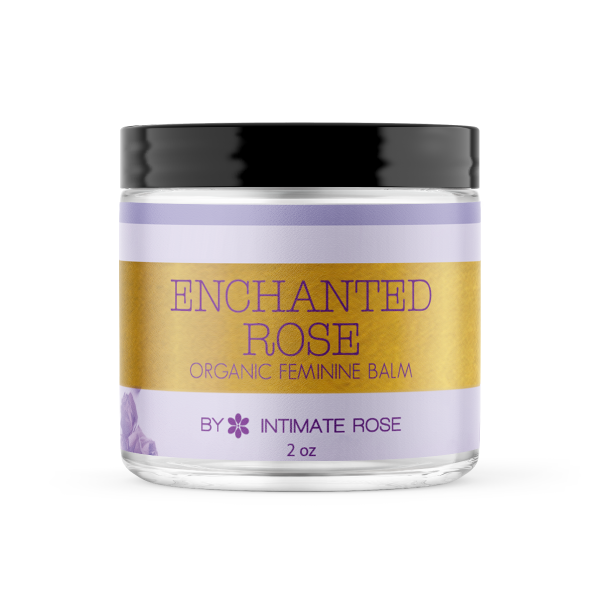When considering menopause hormone therapy (MHT), the results of a flawed study by the Women’s Health Initiative (WHI) can cause women to worry about how it impacts heart health. In 2002, the WHI study suggested MHT could increase the risk of heart disease, breast cancer, blood clots, and stroke in all women, however, these findings are now considered incorrect.
This article covers everything we know about MHT, heart health, and updated studies. We also outline the differences between oral and transdermal estrogen for cardiovascular health, why MHT timing is important for heart health, and why progesterone is included in MHT for some but not others.
The Heart and Menopause
Before the age of 65, research shows that men are more prone to developing heart disease than women. In their early 50s, however, women’s risk of heart disease begins to increase and after the age of 65, the risk is considered the same for men and women.
Like men, the risk of cardiovascular disease in women is linked to various genetic, physical, immune, and inflammatory factors. For example, poor diet, smoking, excessive alcohol, medical history, a lack of exercise, and aging are all known to contribute to heart disease.
However, researchers have found that the increased risk of heart disease in women over 65 is also related to declining estrogen levels.
What is Estrogen?
Estrogen, along with progesterone, is a sex hormone. Although both men and women produce estrogen, women make more to support the female reproductive system until it begins to decline, along with progesterone, during perimenopause.
During the reproductive years, estrogen and progesterone work in tandem to support breast development, vaginal health, menstruation, ovulation, conception, and pregnancy. However, the sex hormones also help the body in other ways.
For example, progesterone supports energy levels, moods, and sleep. Whereas, estrogen can impact almost every organ and tissue in the body, particularly the brain, bones, muscles, skin, metabolism, and heart health.
How Does Estrogen Support Heart Health?
Estrogen protects the heart by helping to manage cholesterol, lowering fat accumulation in the blood vessels and arteries, regulating blood pressure, preventing cardiac fibrosis, and reducing oxidative stress.
Estrogen and Cholesterol
Cholesterol and triglycerides are lipids (or fats) that are vital for healthy cell formation but harmful when overly abundant in the blood. Adequate estrogen levels help the liver metabolize lipids, thereby increasing HDL cholesterol (the “good” type) and decreasing LDL cholesterol (the “harmful” type).
When estrogen levels drop during the menopause transition, LDL cholesterol levels can rise, leading to an increase in the accumulation of fat in the arteries and a higher risk of heart disease.
Estrogen and Hypertension (Blood Pressure)
Every day, the blood vessels narrow and widen while adapting to certain experiences such as drinking coffee, feeling stress, or preserving heat. However, when blood pressure stays high for longer periods it can adversely impact the blood vessels and heart health.
As an influential vasodilator, estrogen lowers blood pressure by helping the blood vessels relax and dilate. This also relieves pressure on the circulatory system.
Research suggests that before menopause women generally have lower blood pressure than men due to the higher levels of estrogen they produce. When estrogen levels begin to diminish during perimenopause, however, it can result in higher blood pressure for some women.
Estrogen and Atherosclerosis
Described as a hardening, or narrowing, of the blood vessels, atherosclerosis is often at the root of a stroke or heart attack. It occurs when cholesterol builds up on the inner walls of the blood vessels and turns into a form of plaque that restricts their natural movement.
When prevented from contracting and dilating normally, blood vessels can become congested or rupture and result in heart or brain injuries.
Estrogen, however, is known to reduce atherosclerosis in women by helping harmful cells that develop into plaque to break down and leave the body. In contrast, low estrogen levels can result in increased atherosclerosis.
Estrogen and Oxidative Stress
Oxidative stress occurs due to an imbalance of antioxidants and free radicals. Free radicals are molecules with unpaired electrons that are highly reactive and harmful to healthy cells.
Aerobic metabolism, poor eating habits, smoking, excessive alcohol consumption, or exposure to environmental toxins are common causes of oxidative stress. When oxidative stress occurs in the heart, it can result in high blood pressure and heart failure.
Estrogen is believed to protect the body (and heart) from oxidative stress by preventing the formation of reactive oxygen species (ROS) molecules, (a type of free radicals). Estrogen can also help eliminate excess ROS molecules from the blood vessels and heart.
Due to lower estrogen levels during menopause, some women can be more prone to oxidative stress in the heart.
Estrogen and Cardiac Fibrosis
Fibrosis involves a build-up of harmful proteins and the growth of connective tissue that adversely affects the organ function upon which it grows. Cardiac fibrosis, where harmful proteins grow between heart tissues can contribute to several cardiovascular issues.
Research shows that estrogen helps prevent cardiac fibrosis by stopping the growth of fibroblasts - cells that develop into the harmful proteins associated with fibrosis – and by stimulating particular genes in the heart tissues that help prevent fibrosis.
HRT, Menopause and Heart Health: The Updated Research
Since the results of the WHI study were published over 20 years ago, research into hormone replacement therapy has been extensive and certainly more optimistic.
For example, findings from new studies along with what was learned from older studies, have revealed the benefits of hormone therapy are indeed far greater than the purported risks when each patient’s health and history are evaluated and considered.
The appropriate method and combination of hormone therapy can also vary for each individual, meaning one type does not suit all.
Timing, or when women begin taking MHT is another vital factor related to heart health during and after menopause.
Hormonal and Non Hormonal Menopause Relief

When You Start Taking MHT is Important: Here’s Why
According to the American Heart Association, MHT can significantly benefit cardiovascular health in women under the age of 60 or who have reached menopause within the previous 10 years. This includes women who have reached menopause naturally, prematurely, or surgically after a hysterectomy.
However, research also shows that the risk of heart disease increases in women who have not taken estrogen for 20 years after reaching menopause.
In both cases, the risk is largely decreased with lower doses of MHT and by administering estrogen with gels or patches instead of orally. Therefore, to eliminate even the smallest risk of heart disease during or after menopause, women are encouraged to seek guidance on MHT earlier rather than later.
Oral Estrogen vs Gels or Patches: Why They Differ?
The extensive research carried out into the effects of hormone therapy on menopause has also revealed that the methods of administration can impact the body differently.
When estrogen is taken orally, for example, it is processed through the liver, slightly increasing the risk of high blood pressure and blood clots in some women, but not all. Although the risk is considered small, it can be avoided by administering estrogen transdermally with a patch or gel, neither of which requires estrogen to pass through the liver.
When combined therapy is prescribed (estrogen and progesterone), synthetic progestin can slightly increase the risk of blood clots, whereas micronized progesterone does not.
Combined HRT vs Estrogen Only: What’s the Difference?
In addition to evaluating each patient’s overall health and medical history before prescribing the correct type of MHT for their situation, another important factor considered by healthcare professionals is whether the uterus is intact.
While estrogen holds the starring role in the benefits provided by MHT, it can thicken the uterine lining in some women and increase the risk of uterine cancer. Including progesterone in hormone therapy, however, eradicates this risk.
Therefore, combined hormone therapy containing estrogen and progesterone is always prescribed to women who still have their uterus.
Those who have undergone a hysterectomy are typically prescribed estrogen-only hormone therapy as progesterone is not required to protect the uterine lining. That said, progesterone is also safe and useful for women who have undergone a hysterectomy to boost moods, increase energy levels, and improve sleep during menopause.
Other Tips to Reduce the Risk of Heart Disease in Menopause
Eating nutritious food can significantly improve heart health, whereas processed, fried, or fatty foods can harm the heart, arteries, and blood vessels. Given the loss of the protective elements that estrogen provides for the heart, it’s important to consume a balanced and nutritious diet throughout menopause.
In addition to supporting heart health, the right food can lower the intensity of symptoms like hot flashes, weight gain, depression, and fatigue. Speaking with a nutritionist can help women develop an eating plan for optimal health during the menopause transition and postmenopause.
Physical activity is known to improve heart health but it often declines with age and an increase in body aches. Poor sleep and the ensuing fatigue that often occurs during menopause can mean a further decline in physical activity.
Regular aerobic exercise such as walking, swimming, or cycling can help counteract estrogen decline and boost heart health. Regular yoga or pilates is also advised during menopause to improve muscle strength, flexibility, balance, and bone growth.

Get your personalized HRT plan!

Get your personalized HRT plan!
Conclusion
Even though it’s primarily known for its role in supporting the reproductive system, estrogen is also vastly important for heart health. Known to help manage cholesterol, blood pressure, plaque accumulation in the arteries, oxidative stress, and cardiac fibrosis, declining estrogen levels during menopause can increase the risk of heart disease.
Despite the bad publicity and scrutiny hormone therapy has received in the last two decades, updated research shows its benefits for the heart, and the rest of the body, far outweigh the risks.
If you have any concerns about the risks of MHT on heart health, speak with your doctor, gynecologist, or a menopause expert to put your mind at ease. Being honest about your overall health, medical history, and menopause journey will help your healthcare provider prescribe the correct type and dose of MHT to ease symptoms and protect your heart as you age.
References
Maturitas - Reappraising 21 years of the WHI study: Putting the findings in context for clinical practice - https://www.maturitas.org/article/S0378-5122(23)00358-4/fulltext
National Library of Medicine - Gender Differences in Cardiovascular Disease: Hormonal and Biochemical Influences - https://pmc.ncbi.nlm.nih.gov/articles/PMC3107852/
Cleveland Clinic – How Estrogen Supports Heart Health - https://health.clevelandclinic.org/estrogen-and-heart-health
National Library of Medicine - Association of Premature Natural and Surgical Menopause With Incident Cardiovascular Disease - https://pubmed.ncbi.nlm.nih.gov/31738818/
National Library of Medicine - Menopausal Hormone Replacement Therapy and Reduction of All-Cause Mortality and Cardiovascular Disease: It’s About Time and Timing - https://pmc.ncbi.nlm.nih.gov/articles/PMC9178928/
National Library of Medicine -Cardiovascular Risk/Benefit Profile of MHT - https://pmc.ncbi.nlm.nih.gov/articles/PMC6780586/
American Heart Association - Menopause Transition and Cardiovascular Disease Risk: Implications for Timing of Early Prevention: A Scientific Statement From the American Heart Association - https://www.ahajournals.org/doi/10.1161/CIR.0000000000000912
Balance Menopause – Heart Health, Menopause, and HRT FAQ - https://www.balance-menopause.com/menopause-library/heart-health-menopause-and-hrt-faq/

Get your personalized HRT plan!












